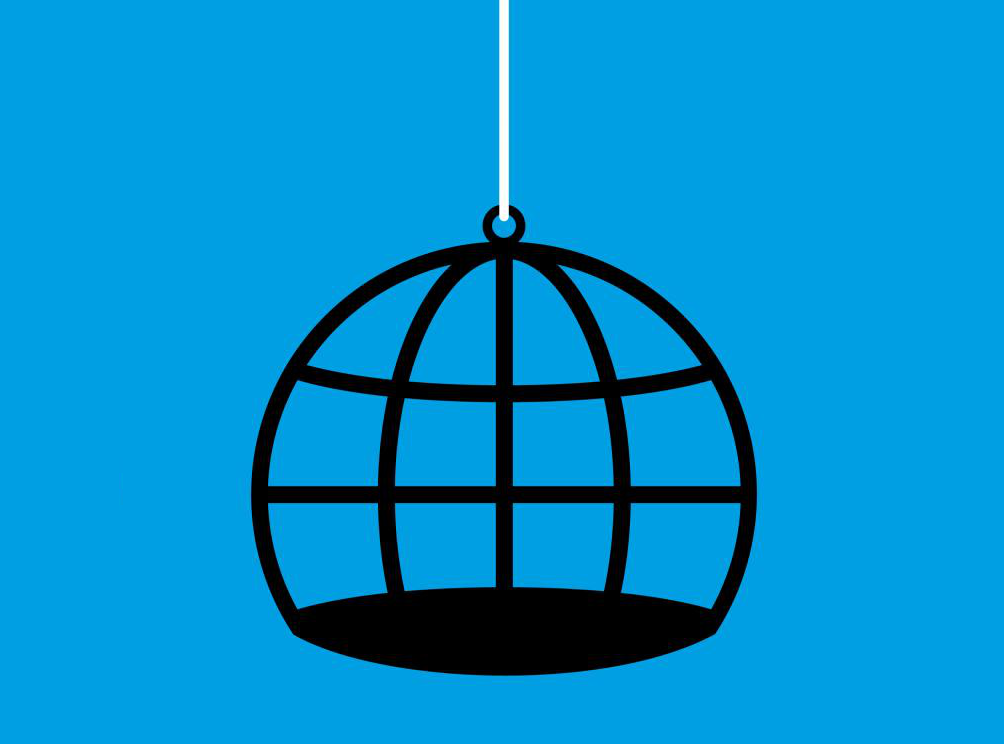Following the European summit’s strong condemnation of the 7 October attacks and its endorsement of Israel’s right to self-defence, a sense of unease pervades discussions of the Israeli military’s brutal actions in Gaza and the occupied territories. This unease is now evident even among the Jewish state’s staunchest allies in Central Europe. Against the backdrop of compelling scenes of widespread destruction, thousands of casualties and the complete collapse of essential services in this Palestinian enclave, calls are now being made for an international investigation into possible war crimes.
“It is not anti-Semitism to accuse Israel of waging war in Gaza and the West Bank in violation of international law,” writes Markus Michaelis in Die Tageszeitung. For the independent German daily, “Germany’s guilt against the Jews is not lessened by the fact that the German government remains silent about the violation of international law by the right-wing government in Gaza and the West Bank and the suppression of critical voices. Wolfgang Kaleck, a German civil rights lawyer, goes even further in his article in the Tagesspiegel, calling for an investigation by the International Criminal Court to avoid double standards: “The Hague prosecution should apply the same standards to the Gaza conflict as it did to Ukraine,” recalling that after the Russian aggression began, The Hague immediately sent specialists to investigate alleged war crimes on Ukrainian soil. Western countries “also have a political obligation to investigate allegations of international crimes – not only against their political opponents such as Russia or Hamas, but also against allies such as Israel,” Kaleck concludes, fearing that failure to do so could threaten the West with a loss of legitimacy.
Receive the best of European journalism straight to your inbox every Thursday
In the Czech Republic, traditionally an unwavering supporter of Israel that unites both left and right, dissenting voices critical of the disproportionate use of force in Gaza are now gaining traction. “Our approach to Israel is similar to that of football fans, characterised by uncritical fervour. But it is not in our interest to give it unchecked leeway,” writes Ondřej Houska in Hospodářské noviny, warning that further escalation could lead to a large-scale war in the Middle East that would drain resources that the West could provide to Ukraine. The daily reminds us that the Ukrainian-Russian war is far more important for the Czechs, since Ukraine’s defeat would mean Russian tanks on the Polish and Slovak borders.
On the same topic
Mizsur András | Telex | EN
András Mizsur, writing for the Telex news portal, contrasts the Hungarian government’s strong support for Israel’s right to self-defence in the face of Hamas attacks in October with its more than cautious approach to Russia’s full-scale invasion of Ukraine. Ties between Hungary and Ukraine were strained long before the invasion, mainly over Ukraine’s adoption of a language law perceived as detrimental to the local Hungarian minority. By contrast, the Orbán government has maintained strong relations with Israel and its prime minister, Benjamin Netanyahu, despite sporadic outbursts of open anti-Semitism.
More picks
Lucrezia Tiberio | Valigia Blu | IT
Italy and Albania have reached an agreement allowing refugees intercepted by Italian ships in the Mediterranean to be transferred to two Albanian sites for asylum assessment. The agreement, described by the Albanian side as a gesture of goodwill, is in return for Italy’s support for Tirana’s efforts to join the European Union. In terms of Italian domestic politics, the deal is significant for Prime Minister Meloni, particularly given the recurring challenge of accommodating significant numbers of refugees in Italy’s southern regions. However, as the Italian investigative agency points out, the issue of repatriation – a primary goal of the current government – appears to remain unresolved, as the Albanian prime minister has explicitly stated that Tirana will not supervise repatriations, implying that migrants deemed ineligible for international protection will be returned to Italy. This raises concerns given the observed inefficiencies in the Italian return system.
Luis F. Durán | El Mundo | ES
The assassination of a Spanish politician appears to have had a Middle Eastern flavour. Alejo Vidal-Quadras, the former president of the Spanish People’s Party (PP) in Catalonia, was shot in the face in Madrid on Thursday 9 november. Vidal-Quadras is one of the founding members of the far-right Vox party, currently the third largest force in the lower house of the Spanish parliament. As a lawyer defending opponents of the Iranian regime, Vidal-Quadras has come under the scrutiny of the Iranian regime. The State Department blacklisted him last year, accusing the former politician of deliberately supporting terrorism and inciting violence.
Michal Katuška | SME | SK
Slovakia’s newly elected Prime Minister Robert Fico, who triumphed in October’s parliamentary elections with a strongly populist and openly pro-Russian campaign, is rethinking his pre-election pledge that Slovakia would not supply “a single bullet” to Ukraine. Fico is now indicating that there will be no cabinet restrictions on private supplies. The fate of existing military contracts for Ukraine remains unclear, but Fico is expected to seek to protect Slovak arms companies. A major deal signed a year ago in Copenhagen by the previous government saw Norway, Germany and Denmark order 16 Zuzana 2 self-propelled howitzers for Ukraine at a cost of €92 million. Following the Russian invasion of Ukraine, Slovakia provided assistance including the S-300 air defence system and MiG-29 fighter jets. At the European Council in Brussels on October 15, Prime Minister Fico expressed support for Slovakia’s continued financial, economic, humanitarian, military and diplomatic assistance to Ukraine.
